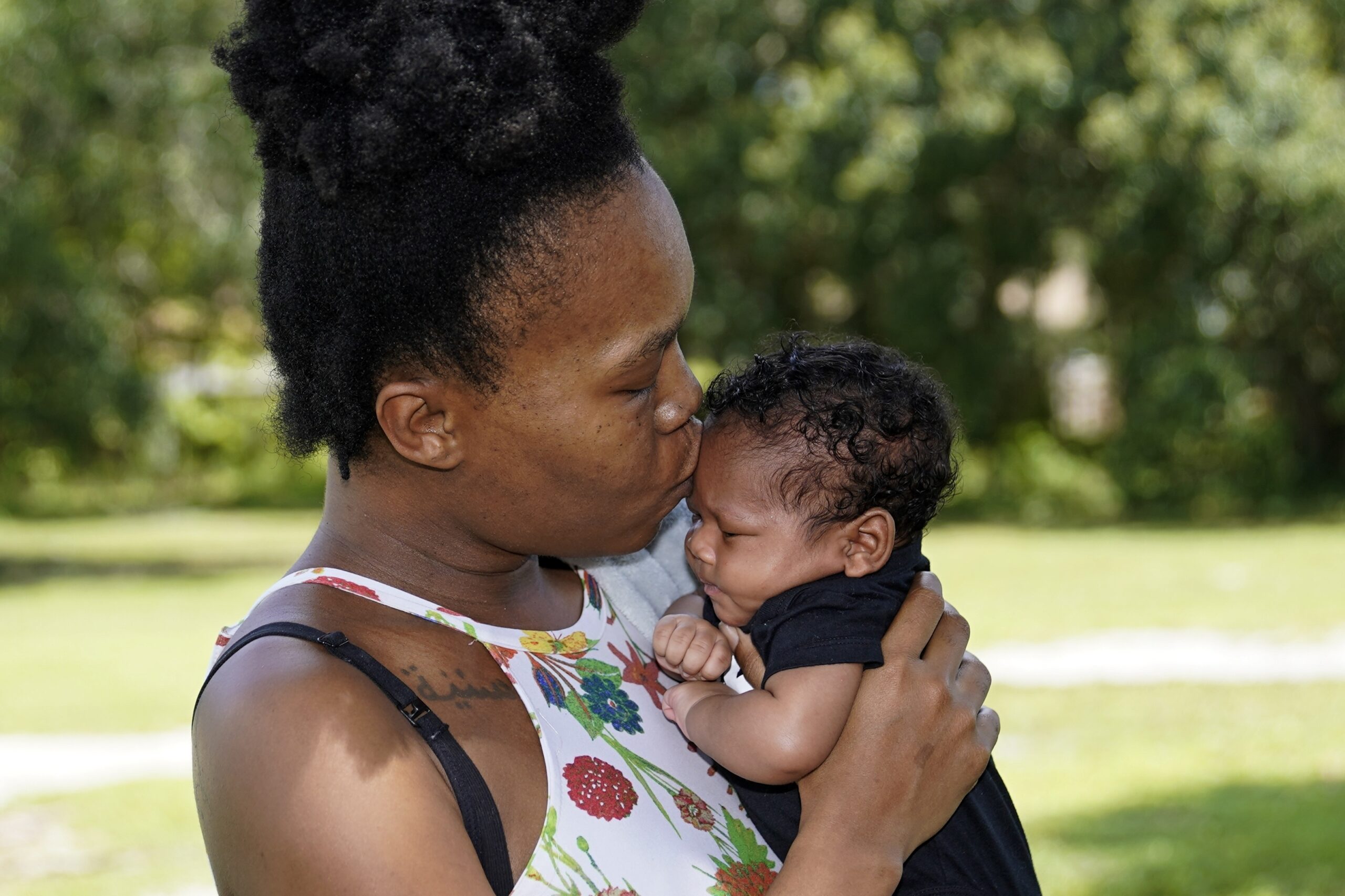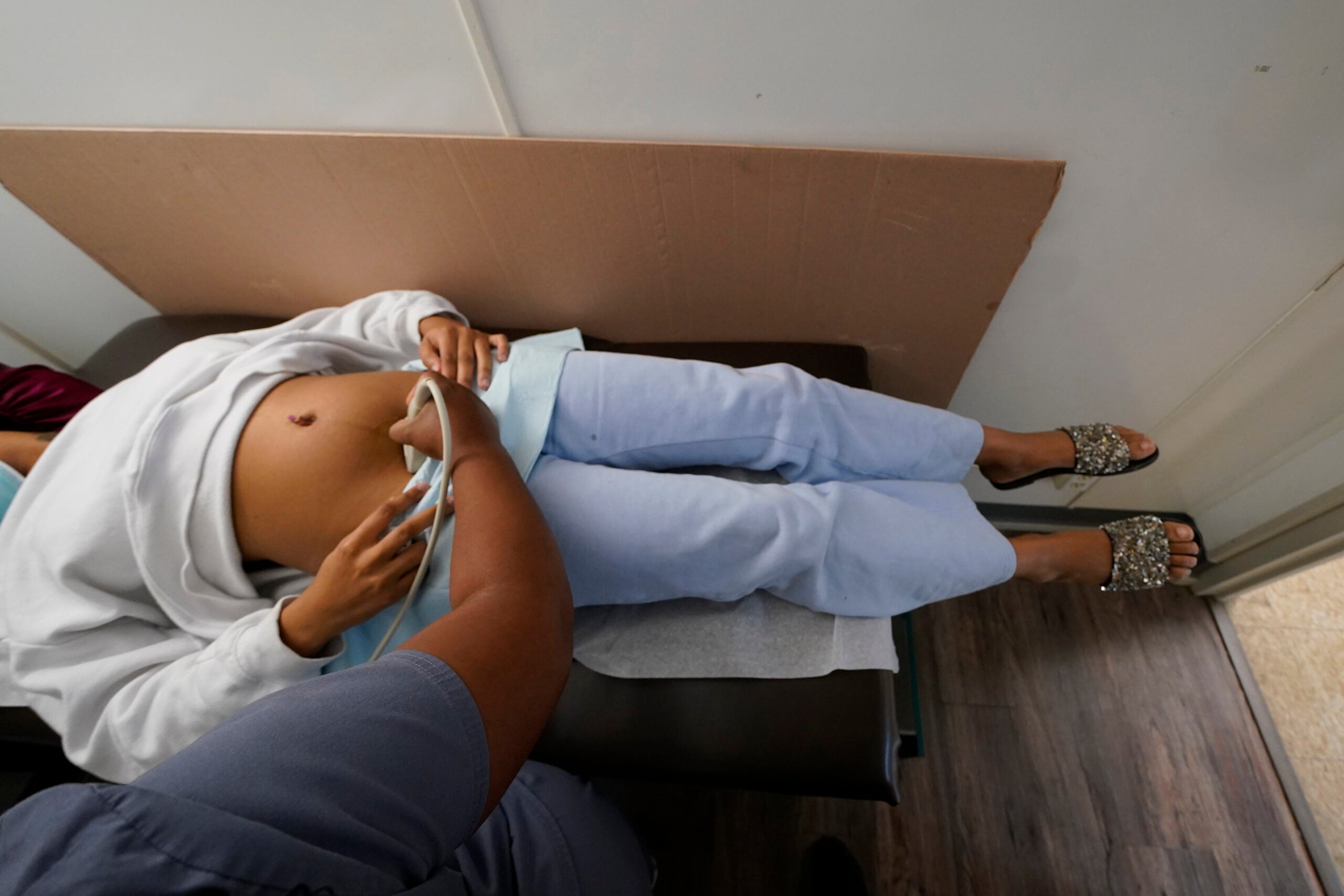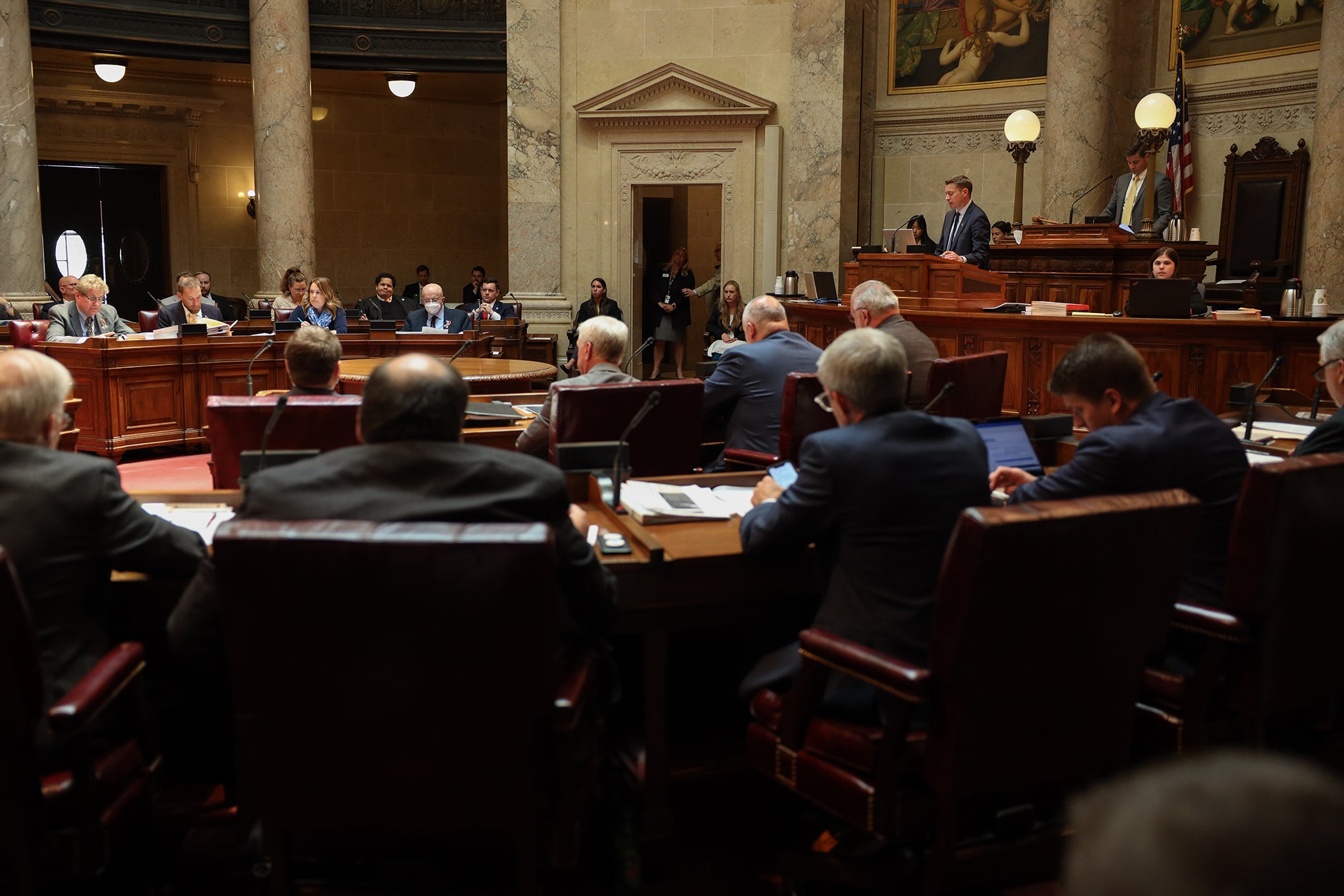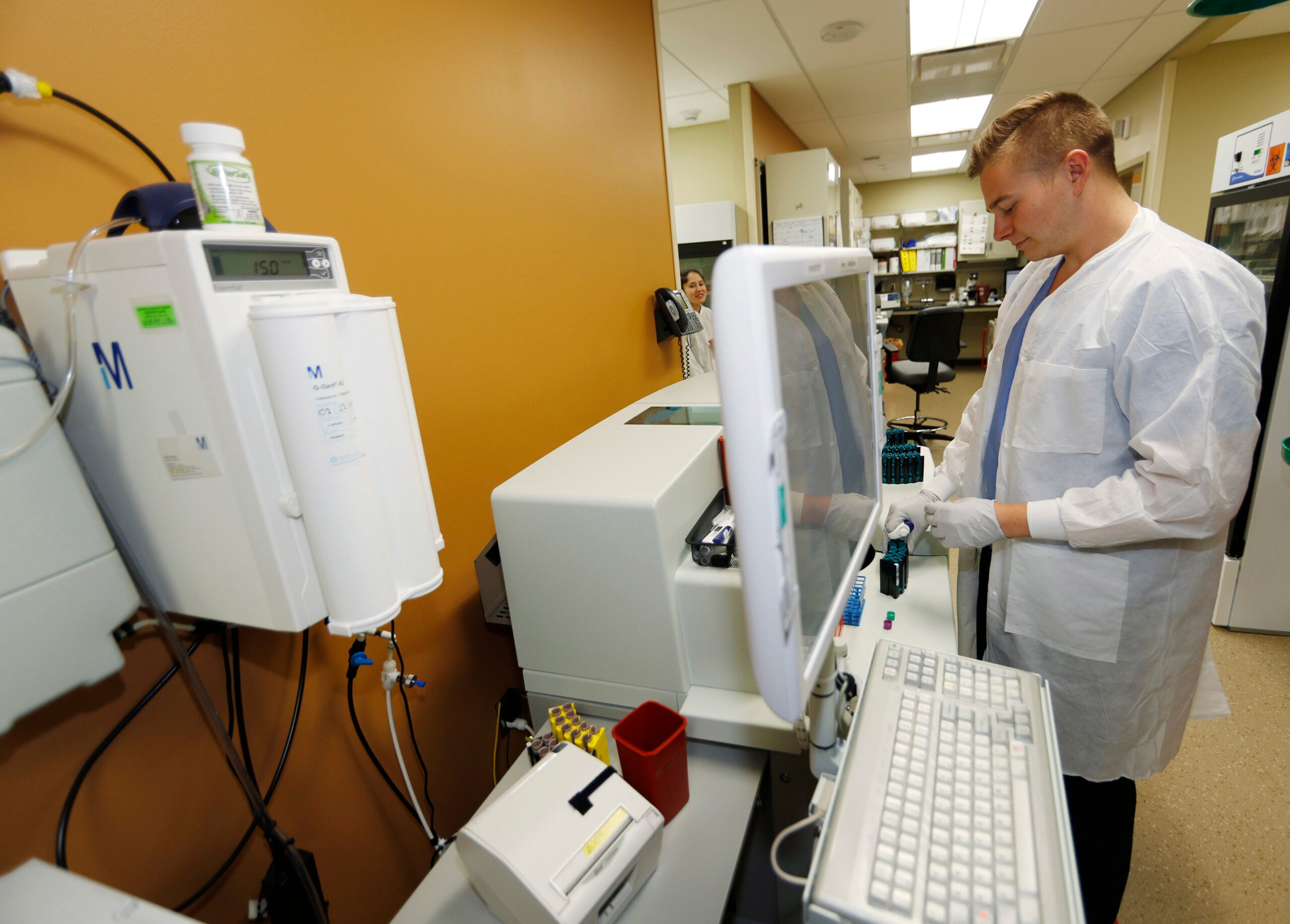Wisconsin lawmakers are once again considering expanding Medicaid access for new mothers — a proposal that received bipartisan support in past sessions but has never received a vote in the state Assembly.
State senators heard testimony from a wide range of medical providers Wednesday in support of the bill, which would give low-income mothers a year of postpartum Medicaid coverage. Currently, those same patients receive 60 days of postpartum coverage.
“The bill is not partisan, in my mind,” said Rep. Patrick Snyder, R-Weston, at a hearing of the Senate Committee on Health at the Capitol on Wednesday. “I’m here to help people, my constituents, and if we can’t get something like this done, then I don’t know what I’m doing in the Legislature.”
Stay informed on the latest news
Sign up for WPR’s email newsletter.
Wisconsin is one of just two states that does not offer expanded postpartum coverage. Supporters argue that expanding coverage improves maternal health outcomes.
“This is a not a red or blue issue, for sure, as evidenced by that it’s a bipartisan patient care and health care funding issue, and so I hope Wisconsin will soon join the rest of the country,” said Lee Dresang, a family medicine doctor at UW Health.
The proposal is supported by a majority of lawmakers in Madison from both sides of the aisle. Two-thirds of the state Assembly and 21 of 33 state Senators have signed on as co-sponsors.
Lawmakers have introduced similar bills repeatedly in recent years, and Gov. Tony Evers has also introduced a similar provision in multiple budget proposals since taking office. A similar proposal in the last legislative session was also widely supported and passed the Senate, but was not brought forward for a vote in the Assembly.
Assembly Speaker Robin Vos, R-Rochester, who controls the agenda in that chamber, has previously said he does not support policies that expand benefits in general. For example, Vos opposes Medicaid expansion under the Affordable Care Act.
Vos’ office did not respond to a request for comment.
‘This bill supports the mothers’
Supporters from both parties tend to argue that such an expansion would improve maternal health outcomes, while Republicans also hold up expanded health access as a way of making it easier for women to choose to carry a pregnancy to term.
Former Rep. Donna Rozar, a Republican from Marshfield, previously led efforts on the bill and testified on Wednesday.
“I’m about as pro-life as you can get, and there are people who will look to abortion because they look at the costs of caring for that baby,” she said. “This bill supports the mothers. It helps those mothers to thrive, not just survive. And they don’t have to worry about health care costs, which may encourage them to have an abortion.”
Tia Izzia, of the Wisconsin Catholic Conference, also testified in support of the bill.
“One of the big objections that we often hear to this bill is the cost,” she said. “If we invest in mothers, we’re also investing in our children. We’re all investing in our future. This is a human dignity issue, and I truly believe that if we spend the money now, we will save it down the road.”
Medicaid covers about two-fifths of all births nationwide, with a similar rate in Wisconsin. Currently, mothers whose household income is 300 percent of the federal poverty level are eligible for 60 days of postpartum coverage. That’s a higher income rate than the standard Medicaid eligibility.
But supporters of expansion say medical issues often arrive after that 60-day mark, so people who are disenrolled often face choices between addressing those issues and covering other costs.
“A change in health insurance coverage, whether that means being uninsured, underinsured or switching to a new plan with a new provider or out-of-pocket costs can result in missed appointments and lack of access to needed treatments,” said Amy Domeyer-Klenske, an OB-GYN at UW Health.

According to the Wisconsin Department of Health Services, 63 people died of pregnancy-related issues from 2020 to 2022. One-third of those deaths occurred more than 60 days post-birth.
Treatment for postpartum mental health issues is also important, said Kathleen Hipke, a psychologist at the University of Wisconsin School of Medicine and Public Health. She said suicide and overdoses are leading causes of postpartum death.
“We’ve already heard that it is hard to access health care. It’s even harder to access mental health care,” she said.
Hipke added that addressing a mother’s mental health needs is ultimately good for a child’s overall health outcomes.
“The healthy social emotional development of babies, which later predicts things like behavior and emotion regulation, school readiness, lots of issues that are very costly in our society … these begin in infancy in healthy relationships,” she said.
Since the federal government first offered an option for states to extend their postpartum coverage to up to a year, in 2021 under the American Rescue Plan Act, every state except for Wisconsin and Arkansas has elected to do so.
“Are they going to beat us and we’ll become the last state in the union to not have this coverage?” said Rep. Snyder.
Wisconsin Public Radio, © Copyright 2025, Board of Regents of the University of Wisconsin System and Wisconsin Educational Communications Board.




